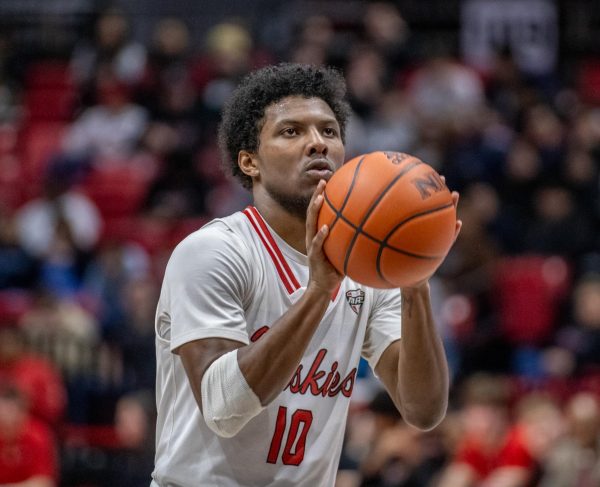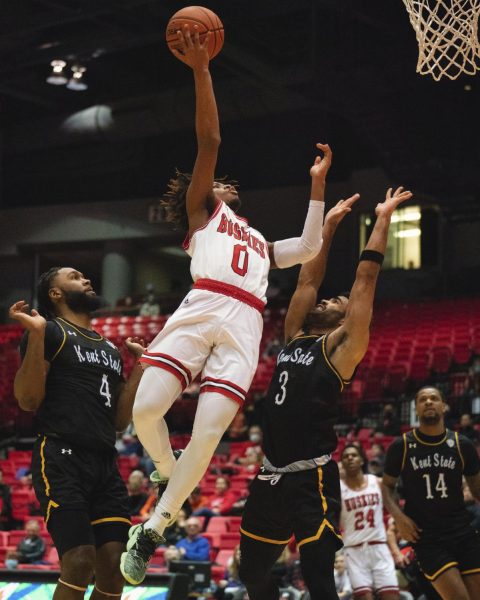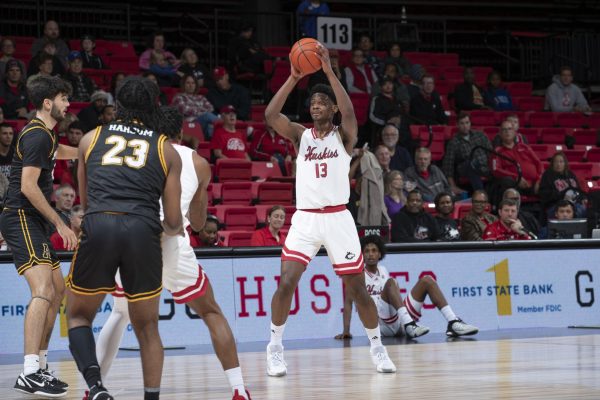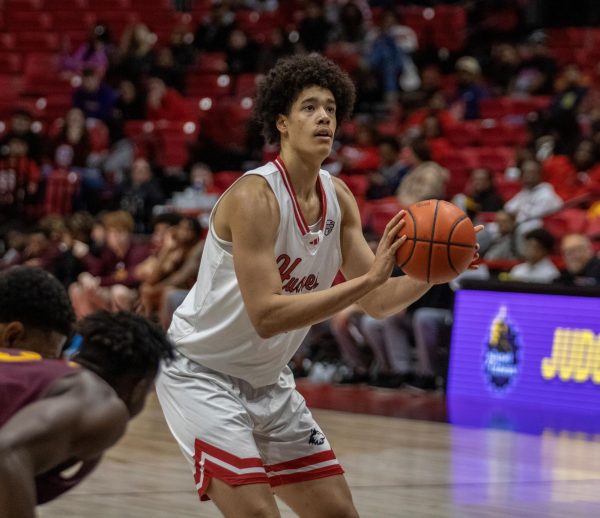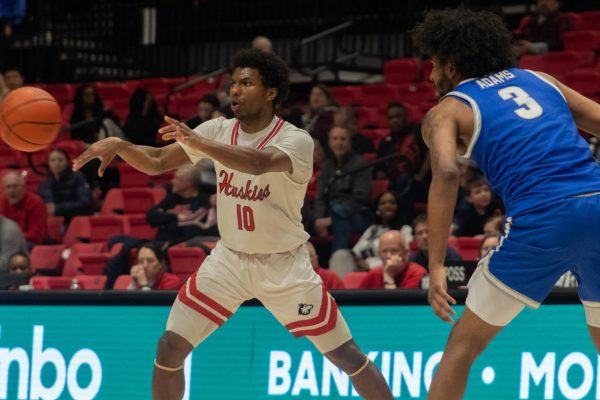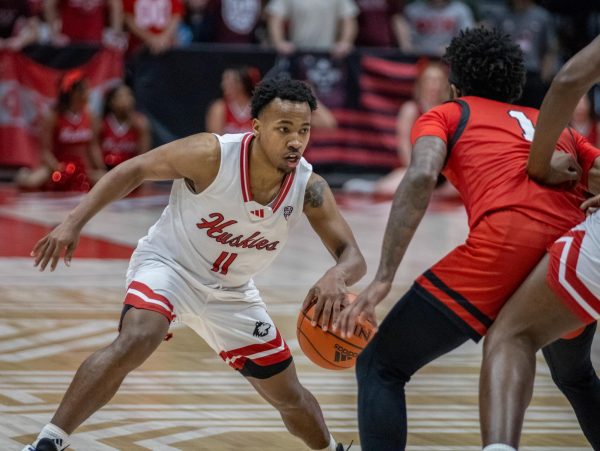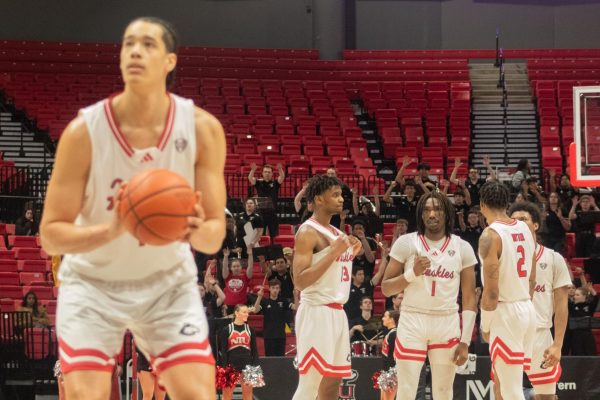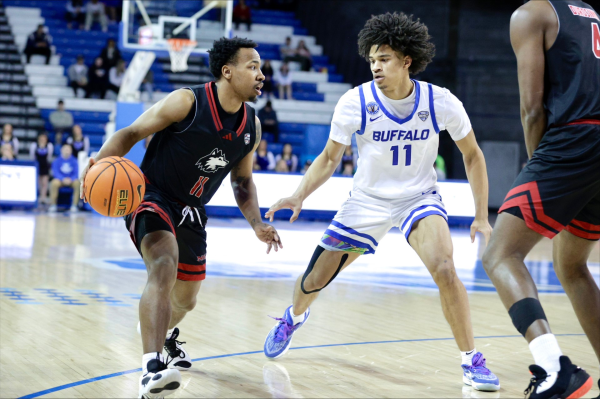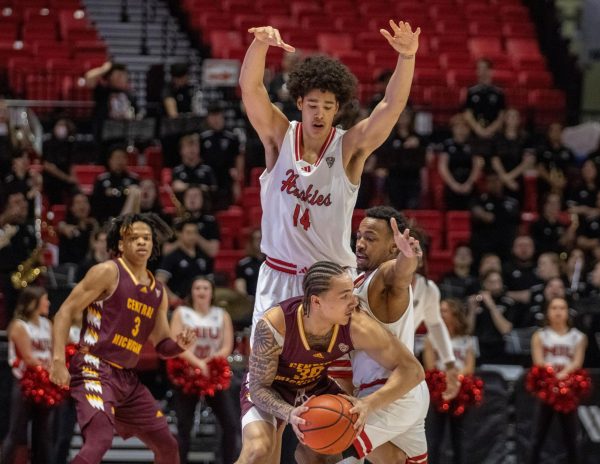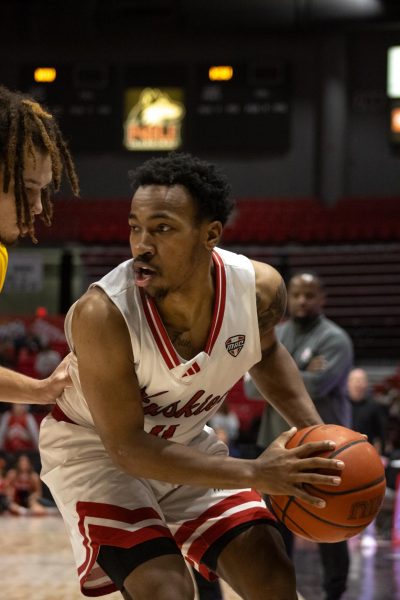Detroit Pistons guard Chauncey Billups visits NIU, reflects on past
September 19, 2008
It’s easy for a pro athlete to forget where he came from once he becomes successful.
But Detroit Pistons guard Chauncey Billups, 2004 NBA Finals MVP and three-time all-star, has not forgotten his roots, and took time to visit his former college basketball coach Ricardo Patton.
Billups played under Patton during his days at Colorado from 1995-1997, before the NBA Championship ring all-star appearances.
During his visit at NIU, Billups visited the men’s basketball team to share a little knowledge and spend some quality time on the court.
Billups also took time to talk with the Northern Star about his relationship with Patton and the impact Patton had on his basketball career and life.
Northern Star: Talk about Patton as a basketball coach.
Chauncey Billups: He’s an unbelievable recruiter, he’s a great basketball mind and he’s never going to let you relax. Coach is a mentor and even to this day I call him for things, just to talk to him when I need someone to talk to. He’s a father-figure type coach. It’s not always about basketball, it’s about life and those are some of the things that are key when picking a school. You’ve got to know a lot of things about the head coach, about what he can do for you.
NS: What life lessons has Patton taught you?
CB: Coach Patton was the toughest coach that I ever played for up until I made the pros, as far as discipline and workouts. He taught me and I learned so much from him outside of basketball. We used to say little quotes and analyze them before practice everyday. I learned a lot from him, from the way you dress or the way you carry yourself. The stuff that a lot of people don’t pay attention to, I do. A lot of that stuff is still stuck with me even right now.
NS: What made you choose Patton over other schools during the recruiting process?
CB: My top choices were Kansas, Michigan, UCLA and Colorado. Colorado didn’t really belong in that bunch, but it was home and I developed a great relationship with Patton through the recruiting process. I lost my grandmother and grandfather my senior year of high school and I felt like I needed to stay home with my mom and dad and my relationship with Patton really sealed the deal. My goal was to make it to the NBA and my whole thing was, it doesn’t matter where you went, but what you did when you were there and I felt like I could make it through Colorado. He allowed me an opportunity and it was awesome and I never looked back.
NS: What did Patton instill in you that you still carry with you today?
CB: It’s a number of things, but probably the biggest is just being persistent. At Colorado we didn’t have the greatest team my first year, but we came back with basically the same team and finished second in the Big 12. He used to always tell us, “Keep working,” “Stay persistent” and “Stay on it,” and things turned around. Ever since then, I really believed that and early in my career I dealt with a lot of the same things, but I just stayed on it and continued to believe what I could do and things started to turn around for me.
NS: What did you tell the NIU players during the time you spent with them?
CB: I told them to have good work habits. One thing I always believed in is working hard and working on my game because that’s something that got me to become the player that I became. I’m not the most talented player in the world, but with the way that I work, when I go up against someone that has more talent but does not work as hard, I’m going to be successful. I just tried to give them that message.
NS: What does it mean to come back and help in your position?
CB: It means a lot. I’m sure he’s told them stories about me and how when I played for him and how hard I worked, so for me to come in and give them a chance to ask me those same questions kind of validates everything and it means a lot to me.
NS: What were some of your fondest memories in college as a student athlete?
CB: As a ballplayer, some of my fondest memories were beating some of the top-ranked teams in the country, especially at Colorado, who hadn’t done that in so many years. We made the NCAA Tournament our second year and hadn’t done that since 1969. We knocked off Indiana and Bobby Knight the first game and we played North Carolina where we were up at the half, but ended up losing that game. Those are memories I will never forget.
Off the court, I stayed in the dorms both my years and I learned a lot about other cultures and other races. I enjoyed college and I enjoyed the experience. I was only able to do that for two years and I wish I could have stayed for four years, but I had to do what I had to do, but it was an awesome experience for me.
NS: How does playing in college compare to playing in the NBA?
CB: I think the college game is a faster game. Obviously guys on my level are better, bigger and stronger, but the college game is a lot faster. It’s a shorter game and you can play a lot harder for shorter spurts. You play about 30 games so you can play all out, but in the NBA, you play so many games and you can’t play at that pace.
NS: How was your transition to the NBA?
CB: My transition was a tough one. My transition from high school to college was easy. As soon as I picked up a ball in college I was dominating. When I went to the pros was the first time that everybody was as just as good or better than me. It took me a while to come around and work on my game and start to catch up and pass some of those guys. It was a tough transition but I never once hung my head.
NS: How do balance all of the travel throughout the season and a family with a wife and three children?
CB: They know during the season I’ve got to do what I’ve got to do. But during an off day I spend time with them. My oldest daughter plays soccer so I’m a soccer dad at the game. My other daughter, who is seven, does ballet so I’d be lucky to make a couple of those recitals throughout the year. My youngest daughter is two. But I balance it out, and they know once the season is over I’m all ears and I can do whatever they want so it works out.


